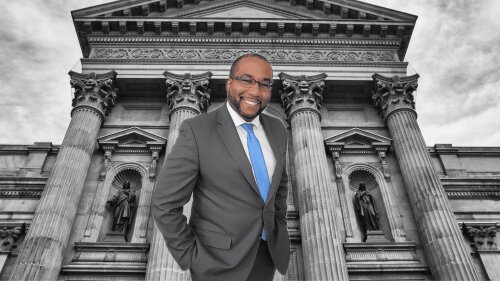Best Drunk Driving Lawyers in Chicago
Share your needs with us, get contacted by law firms.
Free. Takes 2 min.
List of the best lawyers in Chicago, United States
About Drunk Driving Law in Chicago, United States
Drunk driving, also known as driving under the influence (DUI), is a serious offense in Chicago, United States. It refers to operating a motor vehicle while impaired by alcohol or drugs, compromising driver safety and endangering others on the road.
Why You May Need a Lawyer
If you find yourself in any of the following situations, it is advisable to seek legal help:
- Arrested for DUI: If you have been arrested for drunk driving in Chicago, it is crucial to consult a lawyer who specializes in DUI cases.
- License suspension: If your driver's license has been suspended or you face the possibility of suspension due to a DUI charge, an attorney can guide you through the process and help protect your driving privileges.
- Multiple DUI offenses: If you have previous DUI convictions or face additional charges, a lawyer can navigate the legal complexities and work towards minimizing the consequences.
Local Laws Overview
Key aspects of local laws related to drunk driving in Chicago, United States, include:
- Blood Alcohol Concentration (BAC) Limit: The legal limit for BAC is 0.08% for individuals aged 21 and older, and 0.00% for individuals under 21.
- Implied Consent: By driving a motor vehicle in Chicago, you are deemed to have given consent to chemical testing if lawfully arrested for DUI.
- Zero Tolerance Policy: Illinois has a zero tolerance policy for drivers under the age of 21. Any detectable amount of alcohol in their system can lead to serious penalties.
Frequently Asked Questions
Q: What are the potential penalties for a DUI conviction in Chicago, United States?
A: The penalties for a DUI conviction can vary based on several factors, including previous offenses, BAC levels, and any resulting accidents or injuries. They may include license suspension, fines, mandatory alcohol education programs, ignition interlock device installation, and even jail time.
Q: Will I automatically lose my driver's license if arrested for a DUI in Chicago?
A: If your BAC is above the legal limit or you refuse chemical testing, your license may be suspended. However, with the help of an attorney, you may be able to challenge the suspension and potentially regain your driving privileges.
Q: Can I refuse field sobriety tests in Chicago?
A: Generally, you have the right to refuse field sobriety tests, but refusing can lead to an arrest. However, it is essential to consult an attorney about refusing or submitting to tests based on your specific situation.
Q: How long does a DUI conviction stay on my record in Chicago?
A: A DUI conviction can have long-lasting consequences. In Chicago, a DUI offense typically stays on your driving record for at least ten years, but it may have other collateral consequences as well, such as affecting your employment prospects or insurance rates.
Q: Are there any alternative sentencing options available for DUI offenders in Chicago?
A: Yes, depending on the circumstances, alternative sentencing options, such as probation, community service, or participation in a treatment program, may be available. Consulting an attorney can help you explore these options and present the best defense strategy.
Additional Resources
For further information and assistance regarding drunk driving laws and legal advice, consider reaching out to the following resources:
- Illinois Secretary of State: https://www.cyberdriveillinois.com/
- Chicago Bar Association: https://www.chicagobar.org/
- Illinois Legal Aid Online: https://www.illinoislegalaid.org/
Next Steps
If you require legal assistance related to drunk driving in Chicago, it is recommended to take the following steps:
- Identify reputable DUI lawyers in Chicago who have experience and expertise in handling such cases.
- Schedule consultations with the shortlisted lawyers to discuss your situation and assess their capabilities.
- Select a lawyer who understands your concerns, has a track record of success, and provides clear communication and guidance.
- Work cooperatively with your chosen attorney, providing them with all necessary information and documents, and follow their legal advice throughout the process.
- Attend all required court proceedings and cooperate fully with your attorney to present your strongest defense.
Lawzana helps you find the best lawyers and law firms in Chicago through a curated and pre-screened list of qualified legal professionals. Our platform offers rankings and detailed profiles of attorneys and law firms, allowing you to compare based on practice areas, including Drunk Driving, experience, and client feedback.
Each profile includes a description of the firm's areas of practice, client reviews, team members and partners, year of establishment, spoken languages, office locations, contact information, social media presence, and any published articles or resources. Most firms on our platform speak English and are experienced in both local and international legal matters.
Get a quote from top-rated law firms in Chicago, United States — quickly, securely, and without unnecessary hassle.
Disclaimer:
The information provided on this page is for general informational purposes only and does not constitute legal advice. While we strive to ensure the accuracy and relevance of the content, legal information may change over time, and interpretations of the law can vary. You should always consult with a qualified legal professional for advice specific to your situation.
We disclaim all liability for actions taken or not taken based on the content of this page. If you believe any information is incorrect or outdated, please contact us, and we will review and update it where appropriate.










